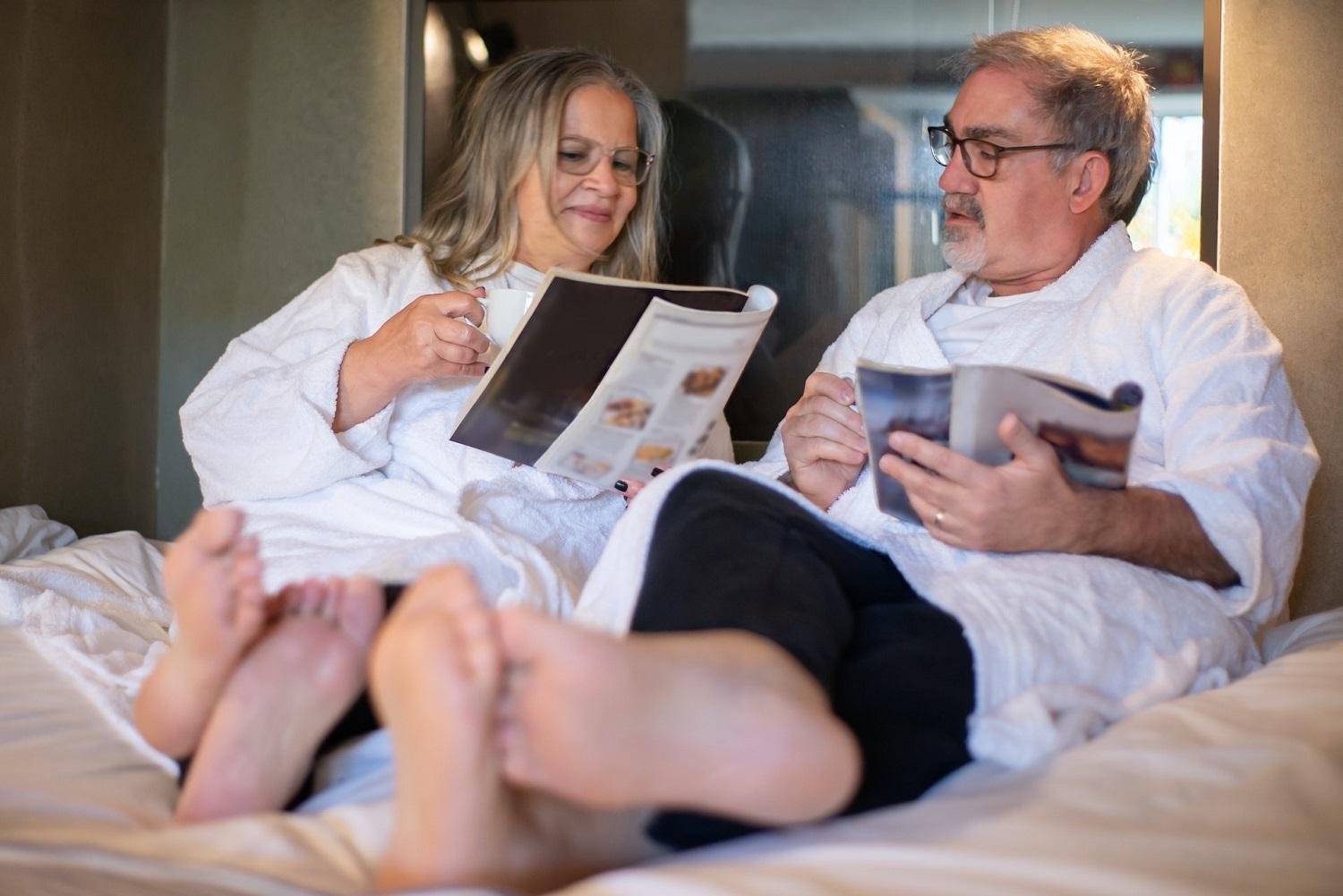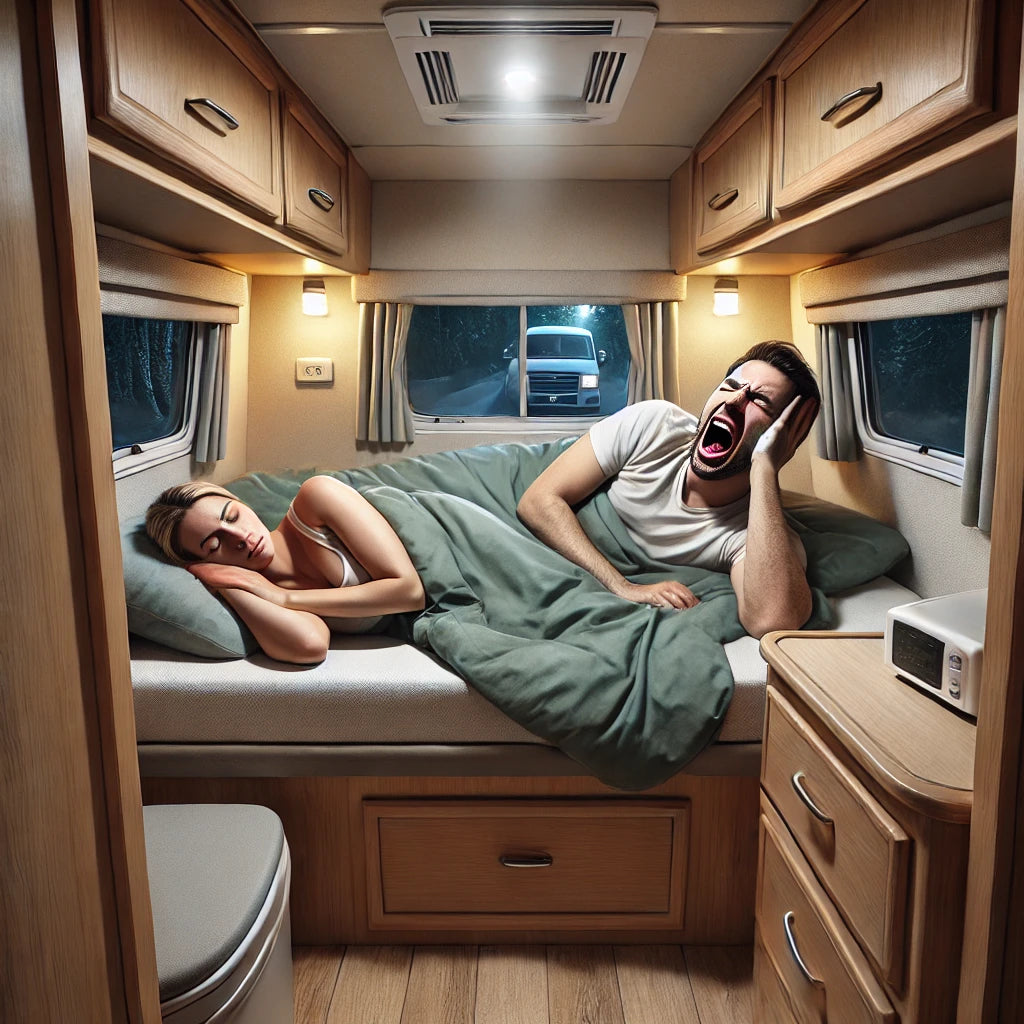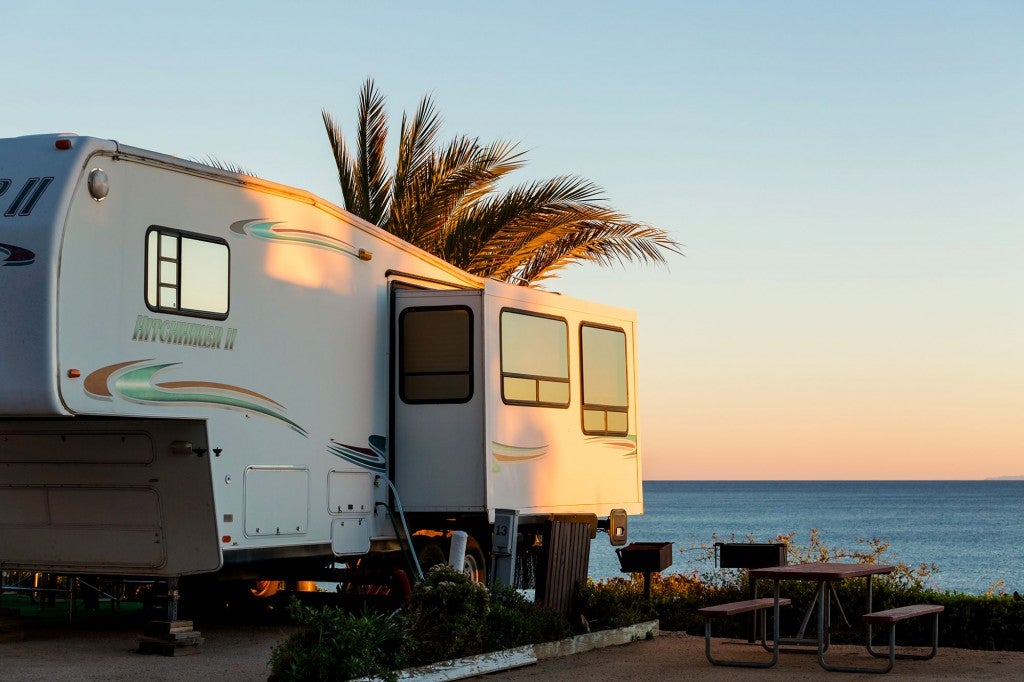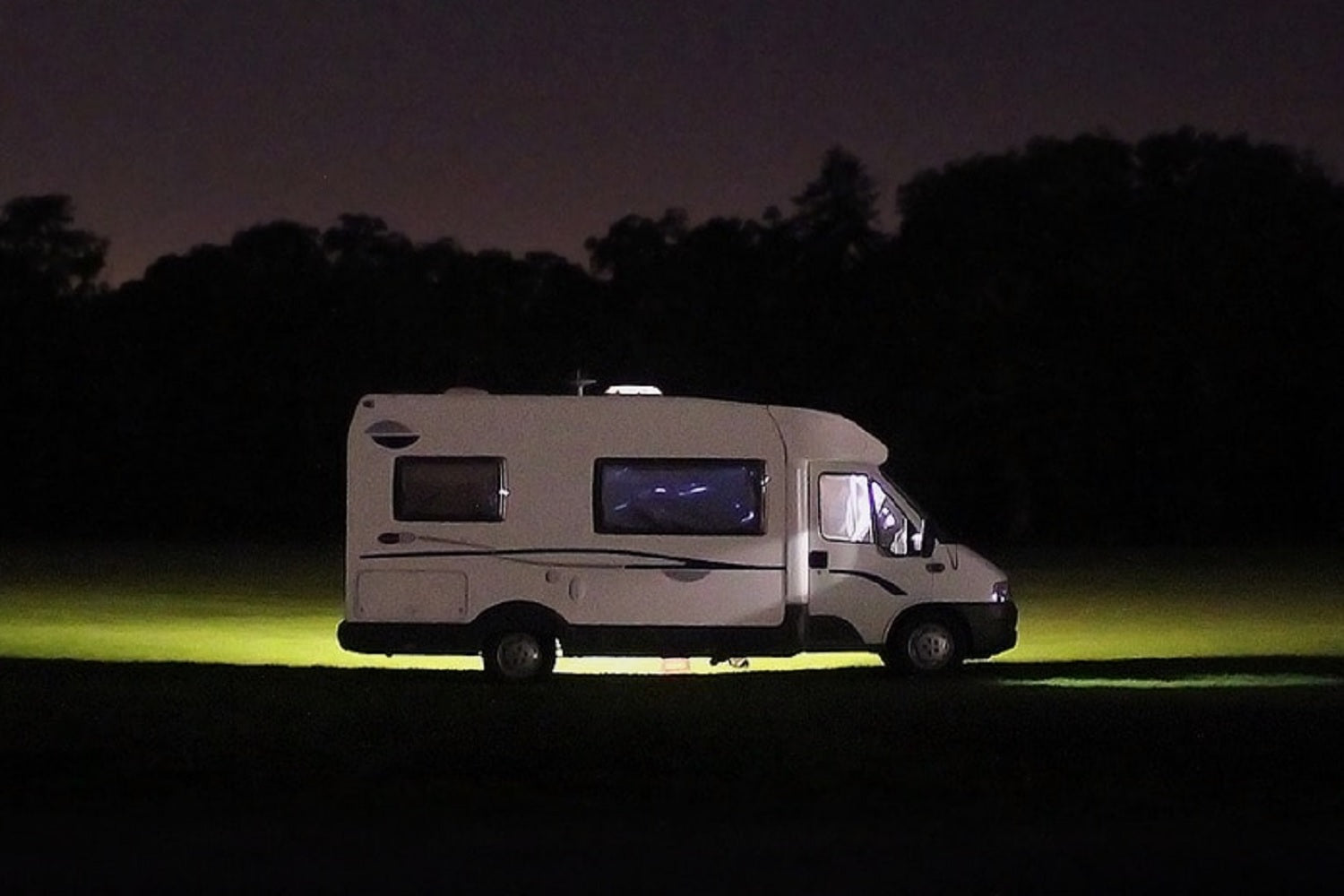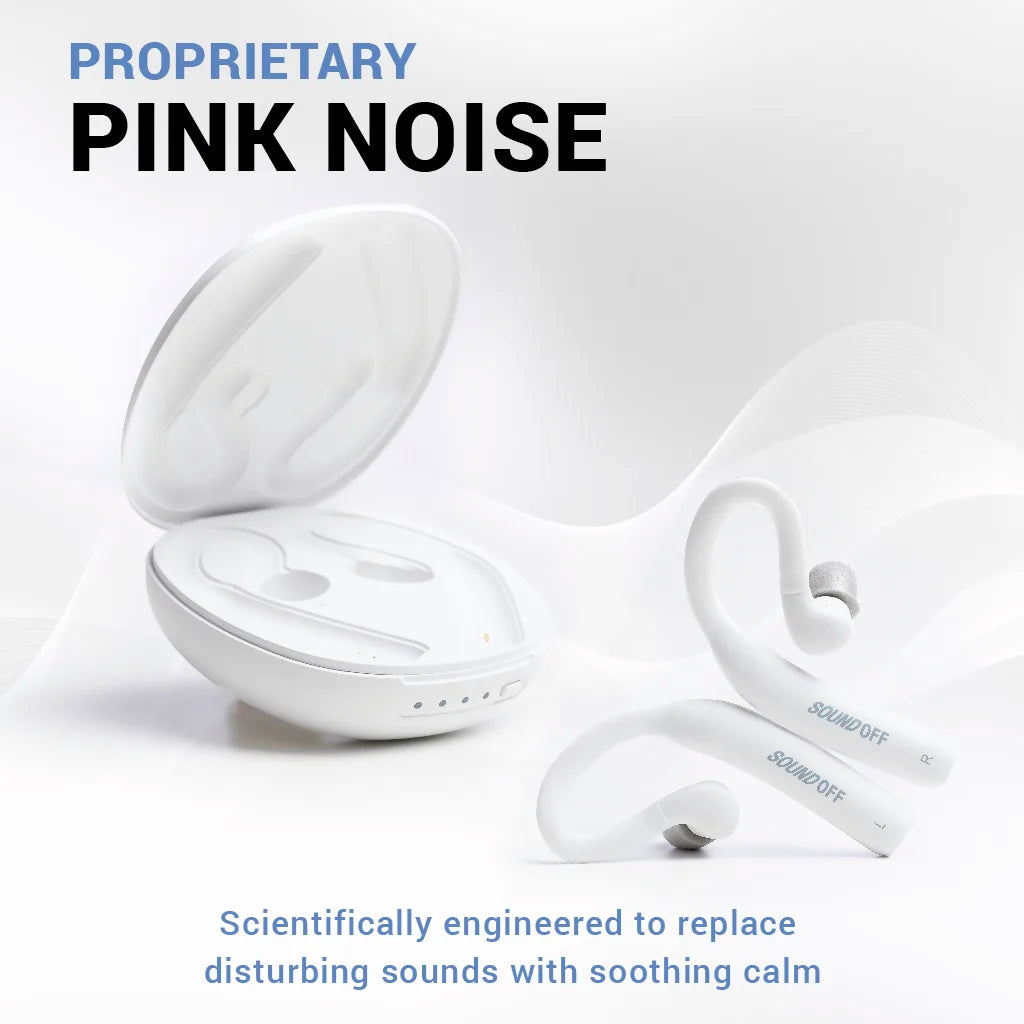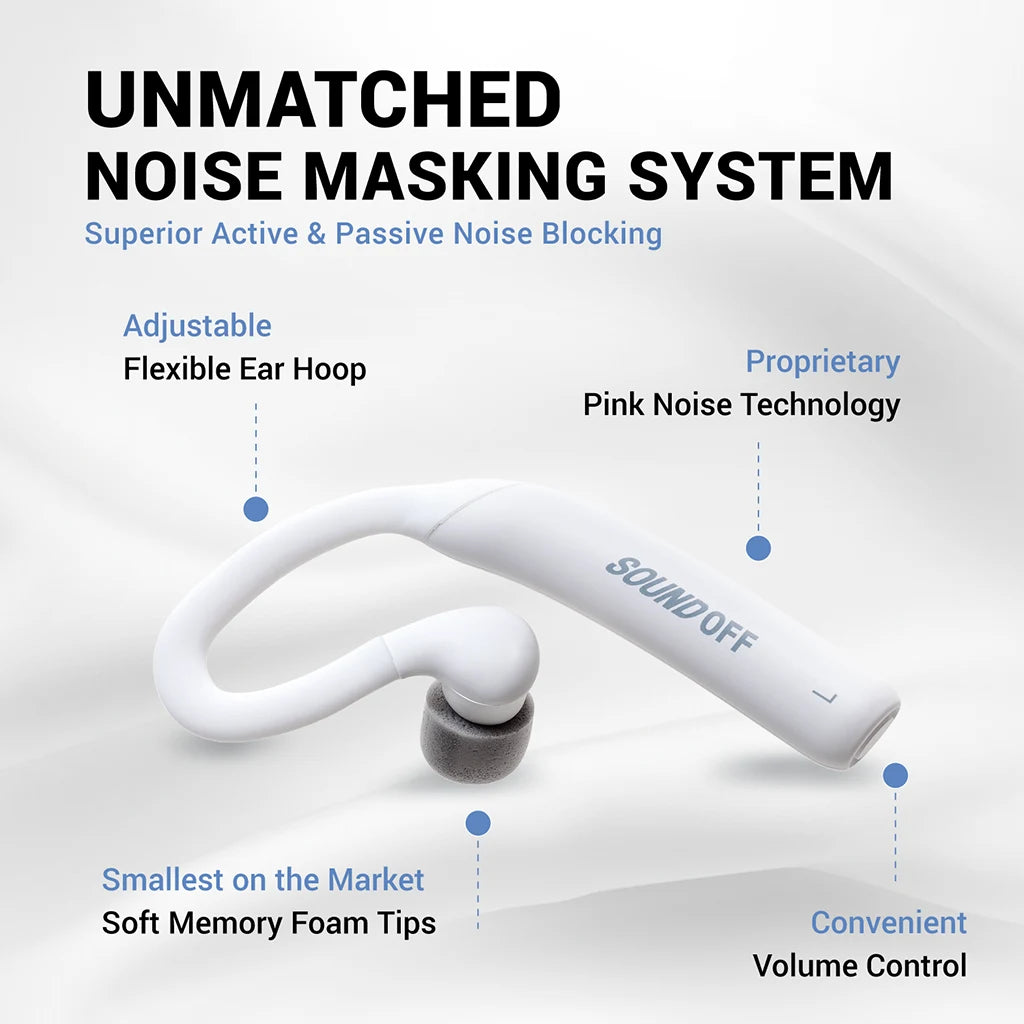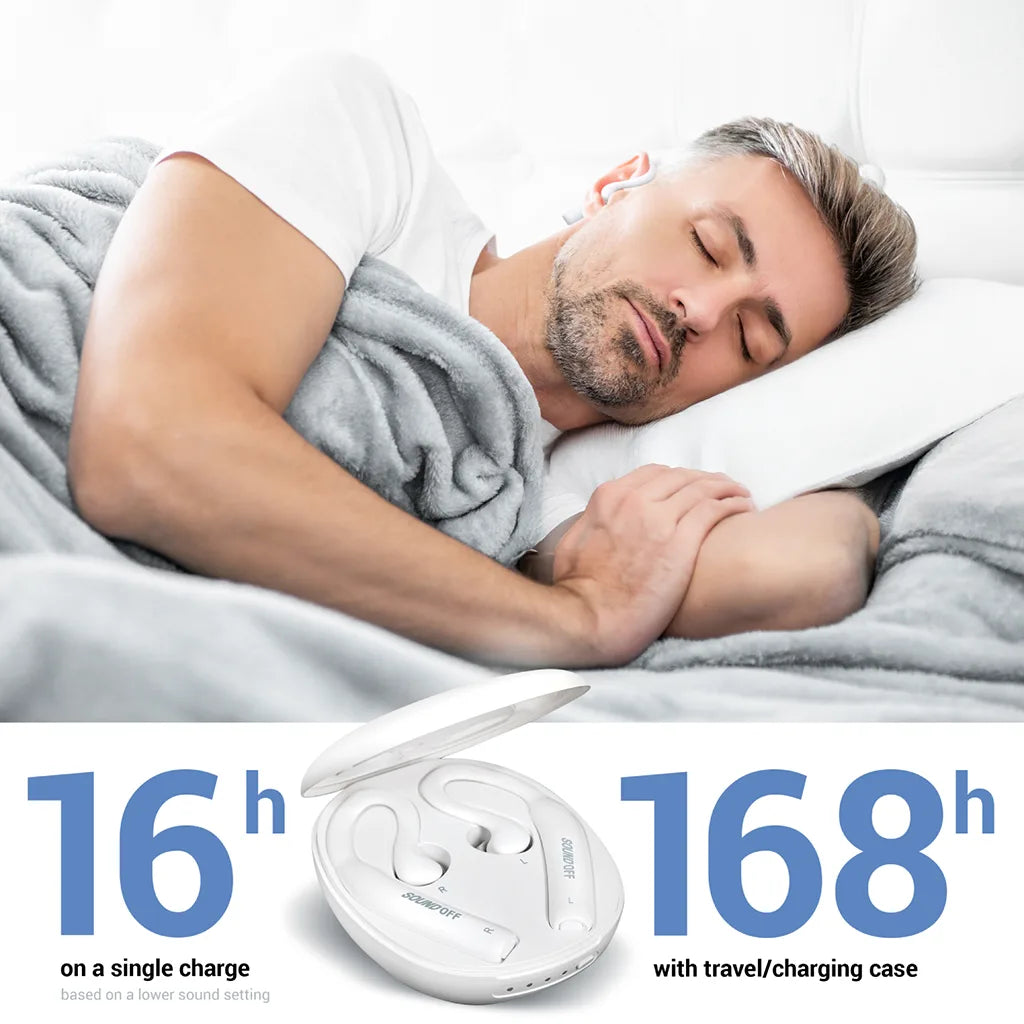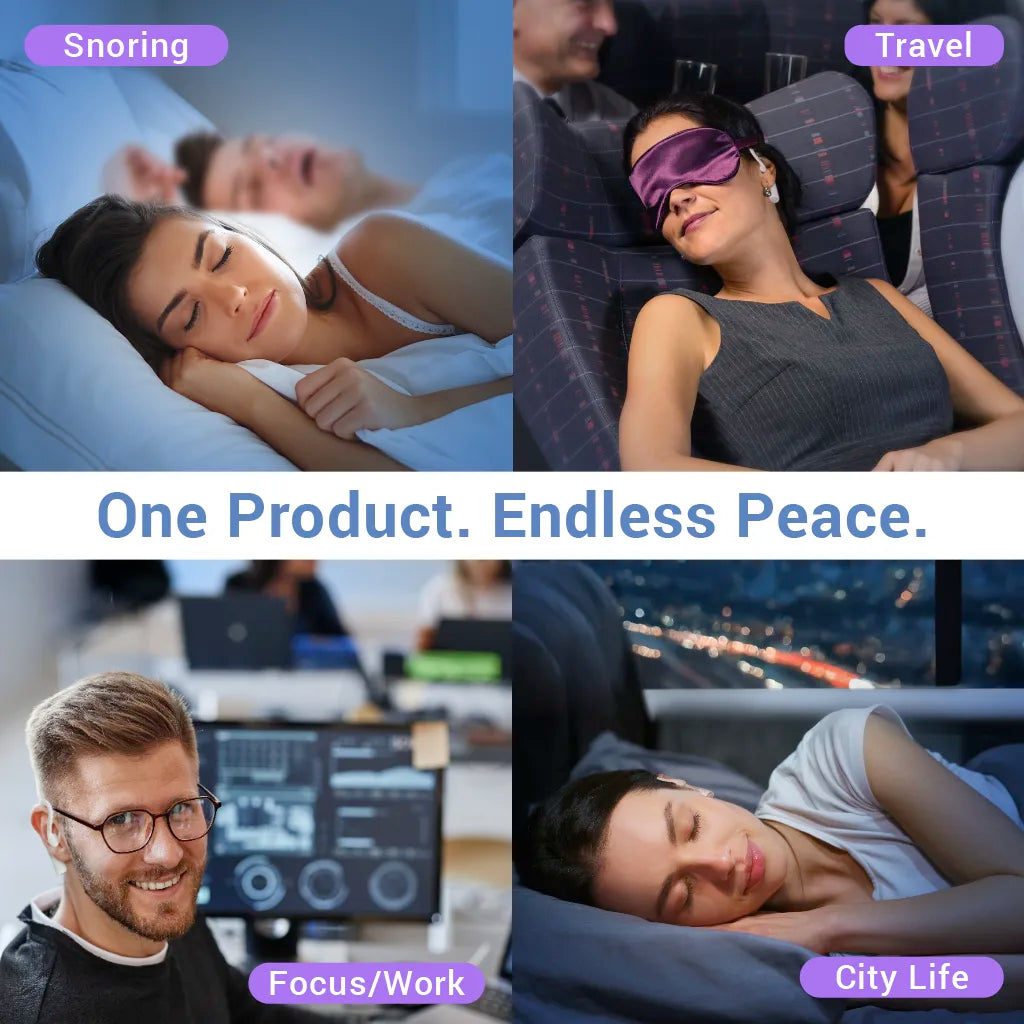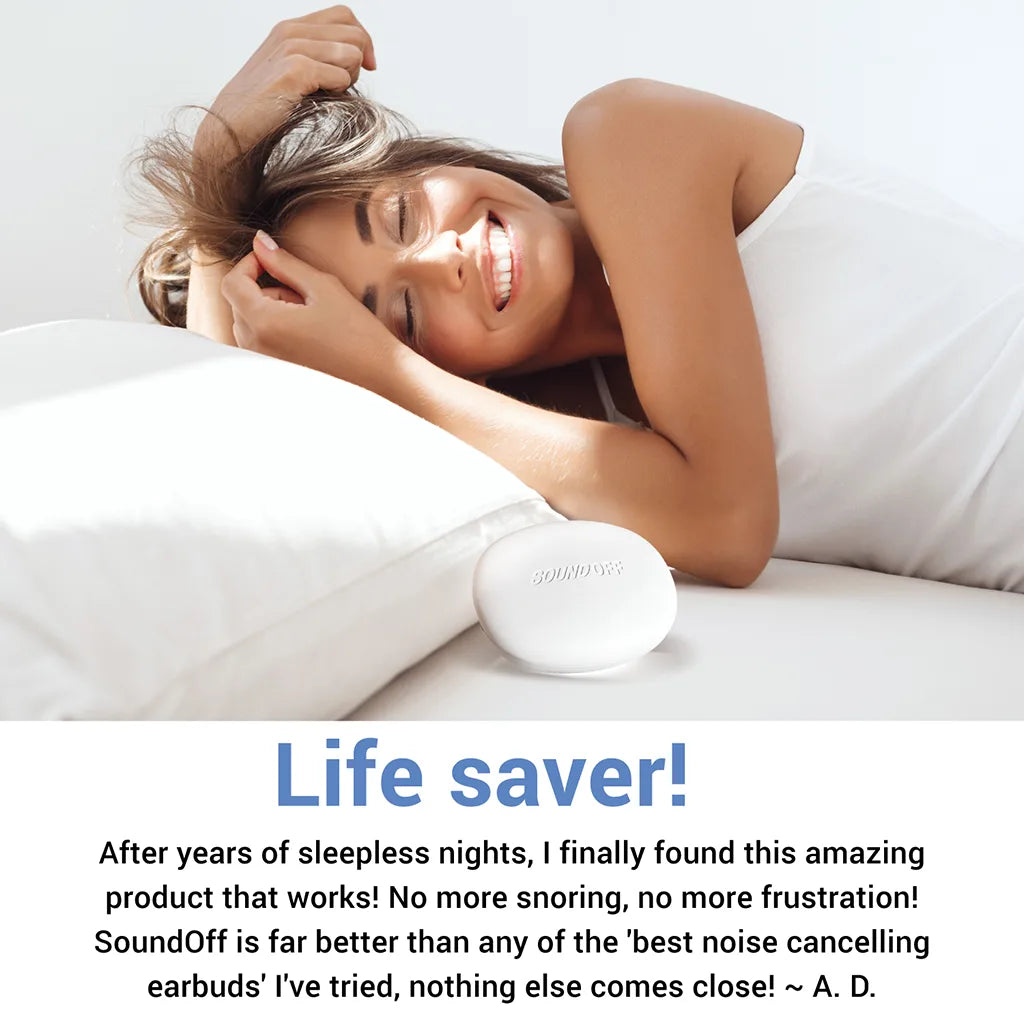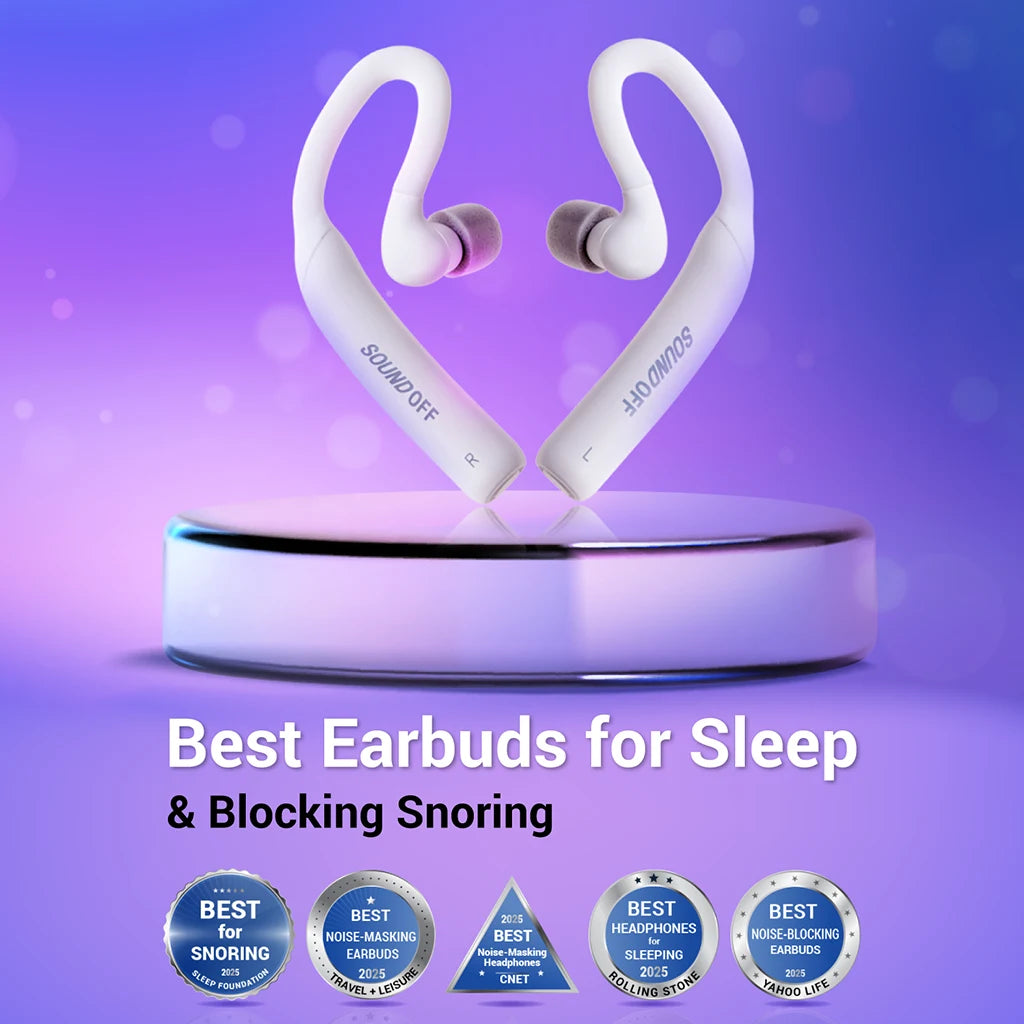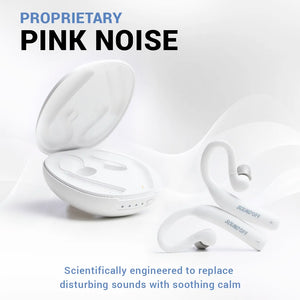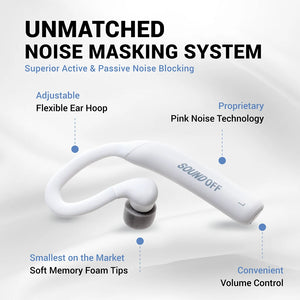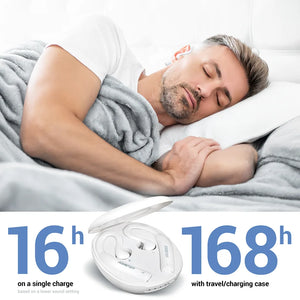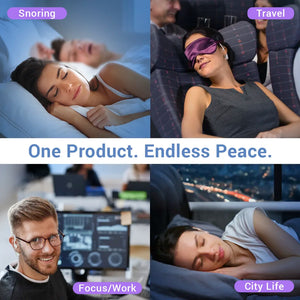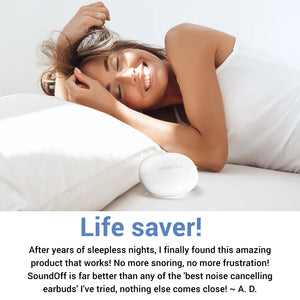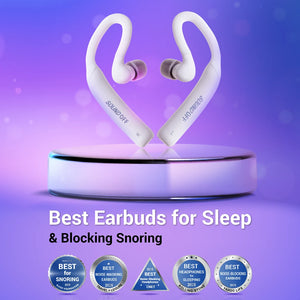
Create a relaxing nightly bedtime routine. This signals your body it's time to wind down and go to sleep.
How to sleep better in your RV
Sleep quality affects our ability to enjoy traveling. Just one night of poor sleep can leave your energy zapped and your patience frayed. This doesn’t make for a happy camping experience for you—or your travel mates. From planning your trip, to choices you make on the road, your sleep needs should be a priority. To that end, this segment of Getting your Sleep in the Great Outdoors will focus on how to sleep better in your RV.
RV travel lets you explore the great outdoors at your own pace—see new places, make new friends, get closer to loved ones—but there are moments that can feel a little too close when you’re in a small space. In fact, adapting to smaller spaces can be a challenge even when traveling alone in your recreational vehicle.
The key to sleeping better in your RV is making sure your space is sleep-friendly inside and out. We will cover…
- Better comfort, better sleep
- Selecting sleep-friendly campsites
- The You factors for better sleep
- Pink Noise sleep benefits
Learning how to sleep better in your RV will elevate your camping experience. When you're finally able to get a good night’s sleep, you'll have more energy for adventuring and more patience for dealing with any hiccups that may occur in your travel plans Let’s get started…
Better comfort, better sleep
Investing in your comfort is important because you need to be able to relax to achieve deep, restful sleep. In fact, we all sleep better when our sleep space is optimized specifically for comfortable levels of light, temperature, and noise.Without these comforts, we struggle to fall asleep and stay asleep.
Quality bedding and a sturdy mattress are key to sleeping better in your RV. If you’re traveling with a partner, make sure your sleep space is optimized for both of you.

Creating a comfortable RV sleep environment…
Your optimal RV sleep space should be cool, dark, and quiet. It’s important to address all three environmental aspects of your comfort—it only takes one to throw your sleep out of whack.
Keeping Cool—
KOA offers 17 tips for keeping your RV cool, including…
- Parking in the shade
- Increasing ventilation
- Using reflective insulation
- Cooking outdoors
If you’re using a fan at night, try setting climate control to “on” rather than “auto.” This keeps it running constantly rather than switching on and off repeatedly with every temperature fluctuation.
Limiting Light—
From early morning sun to headlights from other RVs leveled straight at your window, light pollution interrupts sleep by confusing your circadian rhythm. These tips will help...
- Close the shades and/or curtains to block out external light.
- Install heavy, dark-colored blackout curtains over your standard RV blinds.
- Make sure to pack a sleep mask.
Note: Sleep masks made of non-breathable materials may be uncomfortable for “hot sleepers.” You’ll want to look at sleep mask options to find one that’s just right for you. Padded, non-padded… weighted, bamboo, silk… but no worries—the Sleep Foundation has done some of thesleep mask homework for you.
Block out Noise—
If you’re able to sleep through all the noises you’ll encounter while camping, you’re probably already using our awesome noise masking earbuds—or you’ve lost so much sleep, your body simply can’t stay awake. Here are some tips for dealing with noises inside and outside your RV…
Most important is to select a campsite that is sleep-friendly. This would not include any areas too close to an amusement park, fairgrounds, music festival, etc. The further off the beaten path, the more likely you are to find some peace and quiet.

Sleeping better in your RV begins with selecting the right campsite. Do your research in advance and consider checking out some of the National Parks for a more naturally quiet environment.
Many experienced campers recommend the National Parks for a more serene camping experience. These parks are not only stunningly beautiful, but they also offer more space between campsites—which means you can hear a lot less of what’s going on at your neighbor’s site.
The most popular US national park is Great Smoky Mountains National Park in Tennessee—which sees more annual visitors than Grand Canyon, Yellowstone and Yosemite combined.

Once you’ve selected your ideal campsite, here are some additional measures you can take to limit noise interference inside your RV…
- If your bed is in front, a pull-through space can put a few extra feet between you and your neighbors.
- Make sure your RV is level. If it isn’t, you’re more likely to hear creaking noises as it settles.
- Turn off any noise-making appliances.
- Consider adding insulation to your RV floors—if your floors are hard, you can also try adding rugs or mats.
- Additional sound buffering can be achieved by adding panels or tiles to your RV walls or ceiling—or by adding acoustic foam inside the walls for better soundproofing.
- Snoring partner? Don’t forget to pack your noise blocking earbuds!
Note: If you don’t have a level handy, try asking your campground host for help. And, if your RV A/C gets loud, consult thishandy guide from RV Lifestyle to help make your air conditioning quieter.
Upgrade your mattress—
In addition to the environmental comfort issues above, consider upgrading your mattress and bedding. A comfortable mattress can make all the difference to your quality of sleep. A few extra blankets and pillows can also contribute to your comfort. Check out the Sleep Doctor’s recommendations to help find the right RV mattress for you.
A comfortable, peaceful night’s sleep means you’ll feel refreshed and energized for the day ahead. Don't skimp on your comforts!
Now let’s talk campsites…
Selecting sleep-friendly campsites
We already know you want to avoid campsites situated too close to loud venues. What else should you do to limit noise levels?
Steer clear of campsites along heavily trafficked roads. And if you’re in a developed campsite, choose a site away from public areas like
- Bathrooms & Showers
- Pools
- Running trails
- Picnic spaces
These may sound like unlikely issues to have to deal with at night, but on occasion you may want to nap—or just have some quiet time during the day. Here’s another great tip:
Developed campsites are probably not your best option for peaceful sleeping conditions during holidays and long weekends—these are probably good times for you to try camping somewhere a little more remote. If you’re up for some adventure, you may want to try something off grid like boondocking.
This may mean you’re roughing it without hook ups—but if that’s too daunting, there’s always the option to take the more civilized Harvest Hosts route which offers unique overnight camping experiences at over 4,715 interesting locations like farms, wineries, and golf courses.
Waking up in any of these peacefullocations would surely put a smile on my face!

Alcohol is not sleep-friendly. Toast your adventures with one of these7 non-alcoholic campfire beverages for a better night’s sleep.
The You factors for better RV sleep
Beginning with prioritizing your sleep, the actions you take during the day determine how well you sleep at night. It’s important to continue following the good sleep regimen you use at home even when you’re out in the wild. This means…
- Maintaining your regular sleep/wake times
- Choosing healthy whole foods over packaged snacks
- Staying properly hydrated during the daytime
- Cutting off caffeine by mid-day
- Using up your energy each day with moderate exercise
- Eating lighter meals at night
- Avoiding alcoholic beverages close to bedtime
- Wearing comfortable, weather-appropriate sleepwear
- Turning off your electronic devices an hour before bed
- Practicing a relaxing, nightly wind-down routine
Camping is known to naturally help people re-set their internal sleep clocks. Work with yourchronobiology to get the most health benefits from your time in the great outdoors.
Pink Noise sleep benefits
Pink noise is a low-frequency noise that emulates sounds in nature—like waterfalls and rustling leaves. It has been shown to improve sleep quality in these ways…
- Pink noise masks distracting sounds that can cause stress and anxiety.
- It calms the brain which helps you relax so you can fall asleep.
- Pink noise has been shown to increase melatonin levels which can help regulate your sleep-wake cycle—This is because it helps you sleep deeper and longer.
Loud snoring in tiny spaces is a non-issue when you're wearing SoundOff Sleep earbuds. With SoundOff, you won’t hear the snoring… or the RV creaks… or the barking dog outside… or the loud neighbors in the space next door…
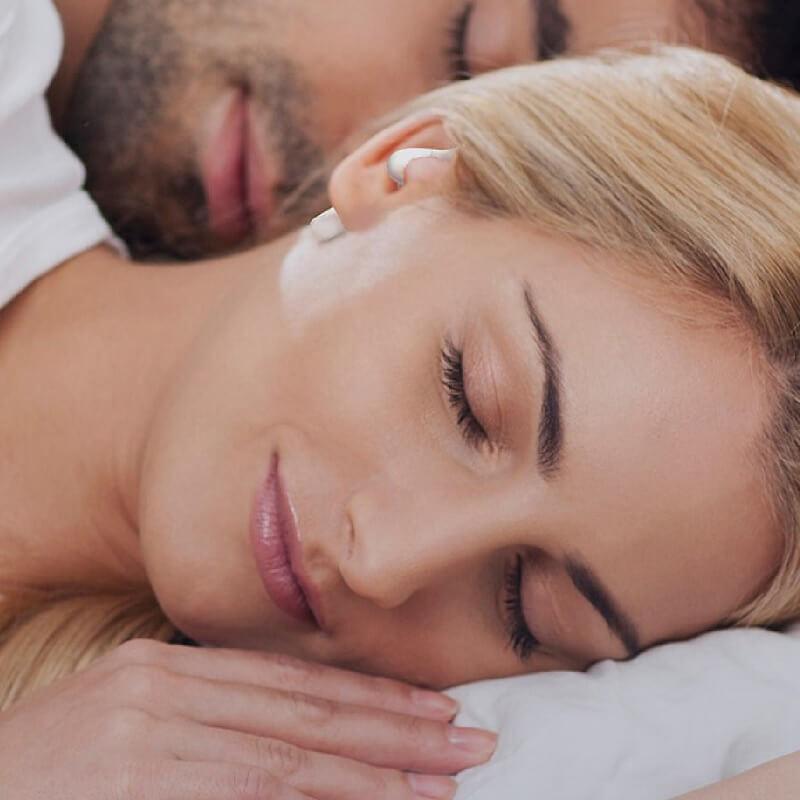
Pink noise earbuds
Pink noise is similar to white noise, but with a lower frequency which makes it more pleasant to the ear—and more soothing to the mind. This is the “lullaby-esque” sound you’ll hear in our snore-silencing sleep earbuds.
Our proprietary blended pink noise was designed by a PhD in psychoacoustics—specifically to drown out the log-sawing drone of your snoring partner.
Happily, it will also drown out any distracting mind-chatter that’s keeping you from falling asleep and staying asleep. The steady consistent sound of our Pink Noise simply lulls you to sleep and helps you sleep all night long.
If your RV sleep is troubled due to snoring, RV creaks, external noise… or an overactive brain, SoundOff earbuds can help you become a happier camper.
Give SoundOff a try before your next outdoor adventure—You’ll LOVE what you can’t hear!
Join us next week for more tips on getting your sleep in the great outdoors…

